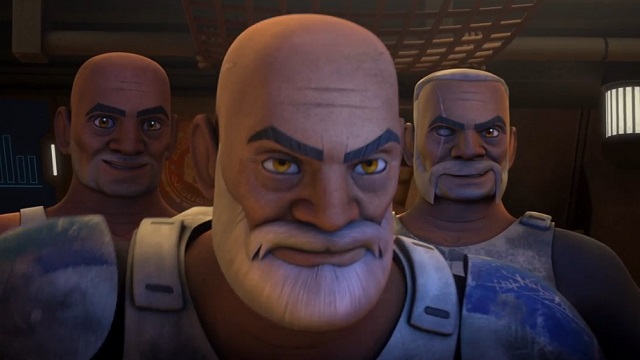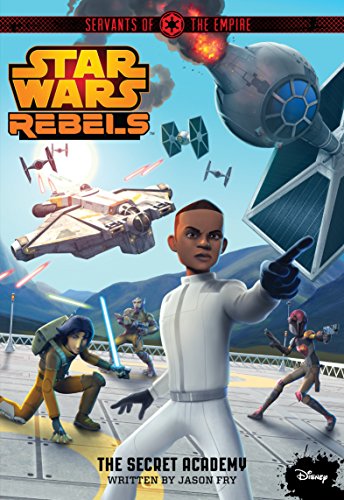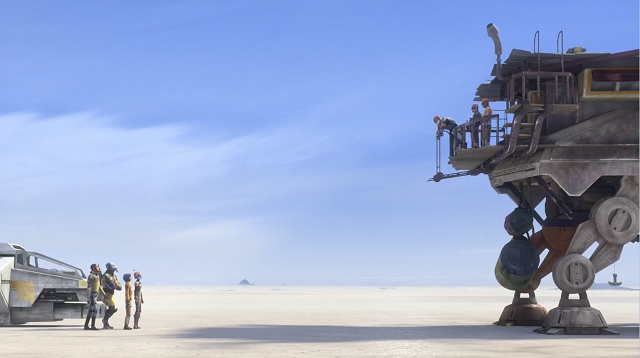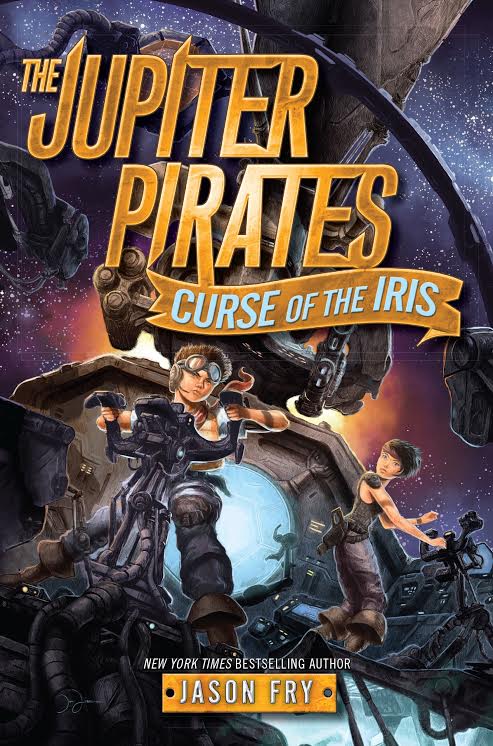
How often does a franchise allow its characters to grow old, to mature, or even to have their characters legitimately become damaged, irreparably changed? Character development isn’t always a positive thing, necessarily. Sometimes, something develops that isn’t positive at all, and that takes a certain level of determination and daring to do. The characters that the audience loves might suddenly become the ones that they hate, or pity.
When Star Wars Rebels started ramping up promotions for the beginning of the second season, they let us know that there would be returning characters from The Clone Wars appearing, namely, three of the clones themselves. Before any footage came out, it was easy to assume that the years had been relatively kind to the trio. Wolffe, Gregor and Rex looked older, grayer, a bit heftier, but not too much worse for wear for coming through as much conflict as they did.
Of course, once footage came out and once the episodes themselves had aired, appearances turned out to be deceiving.
Gregor, who suffered from amnesia in his initial appearance, had apparently suffered some degree of brain damage either in the explosion that had seemingly killed him, or some time thereafter. He still has his inbred ability and the skills driven into him by his training, but his rational mind is a babbling, bubbly mess. The implication that such a mentally disturbed man had, at some point, returned to service under the Empire is almost as disturbing as the idea that he is conscious of his condition and doesn’t really care. Read More
 As the Journey to The Force Awakens campaign kicked off on September 4th, one of the many questions readers started asking was: why is the Empire falling apart so quickly? The obtuse answer is that this is what the story demands, and we’ll learn the full reasons on December 18th. But many of us thought the war would last far longer than in the Expanded Universe, where the Empire was driven out of the Core Worlds as early as five years after Return of the Jedi. Surely this time the war would truly rage on for many many years: but that’s not what happened. Suddenly, the Empire of the EU seemed a lot more solid and formidable. Folks speculated as to the reasons why, such as the collapse of central authority, the unwillingness of the Navy to waste time protecting a symbolic world like Coruscant, defections to the New Republic, etc.
As the Journey to The Force Awakens campaign kicked off on September 4th, one of the many questions readers started asking was: why is the Empire falling apart so quickly? The obtuse answer is that this is what the story demands, and we’ll learn the full reasons on December 18th. But many of us thought the war would last far longer than in the Expanded Universe, where the Empire was driven out of the Core Worlds as early as five years after Return of the Jedi. Surely this time the war would truly rage on for many many years: but that’s not what happened. Suddenly, the Empire of the EU seemed a lot more solid and formidable. Folks speculated as to the reasons why, such as the collapse of central authority, the unwillingness of the Navy to waste time protecting a symbolic world like Coruscant, defections to the New Republic, etc.
 In
In 